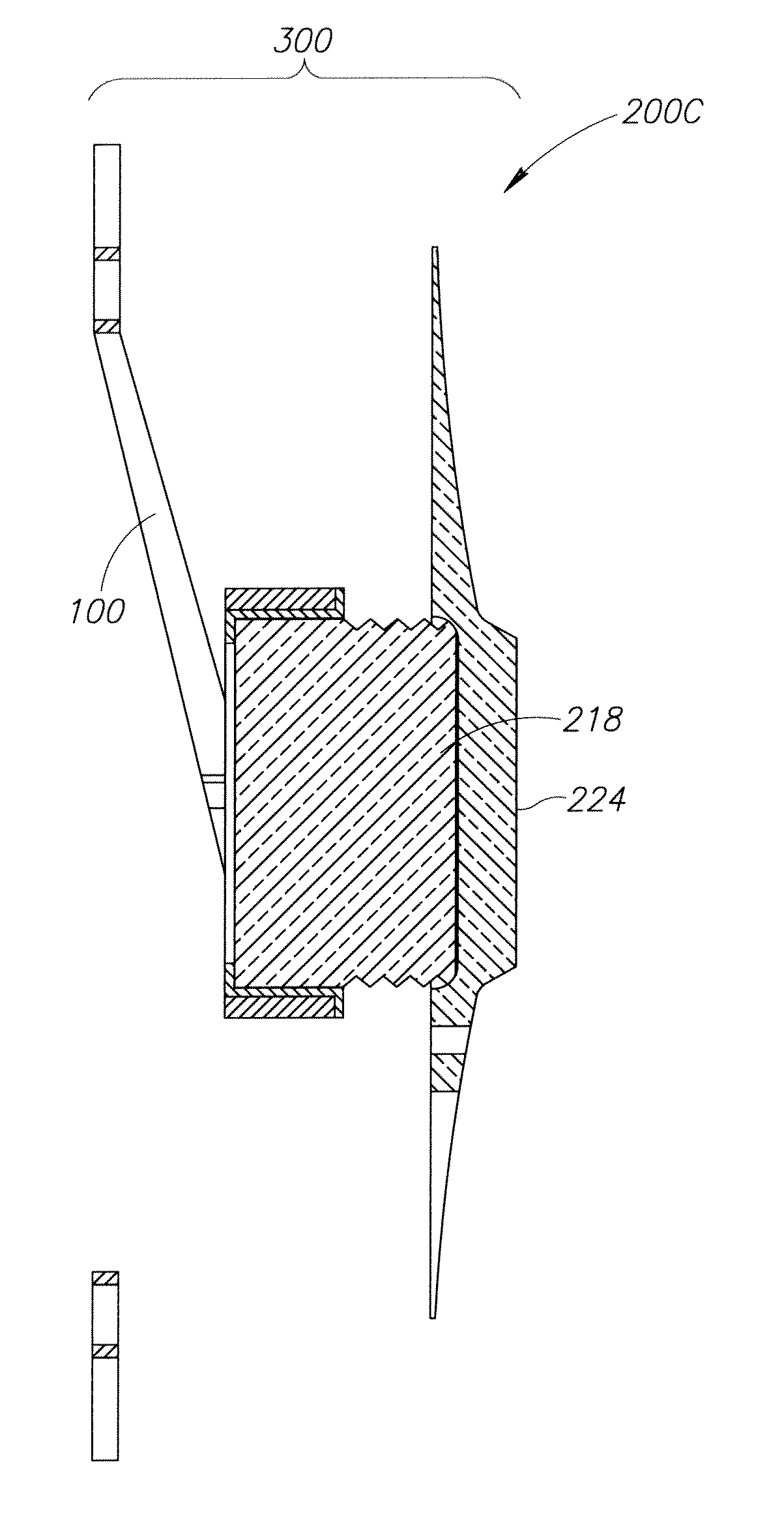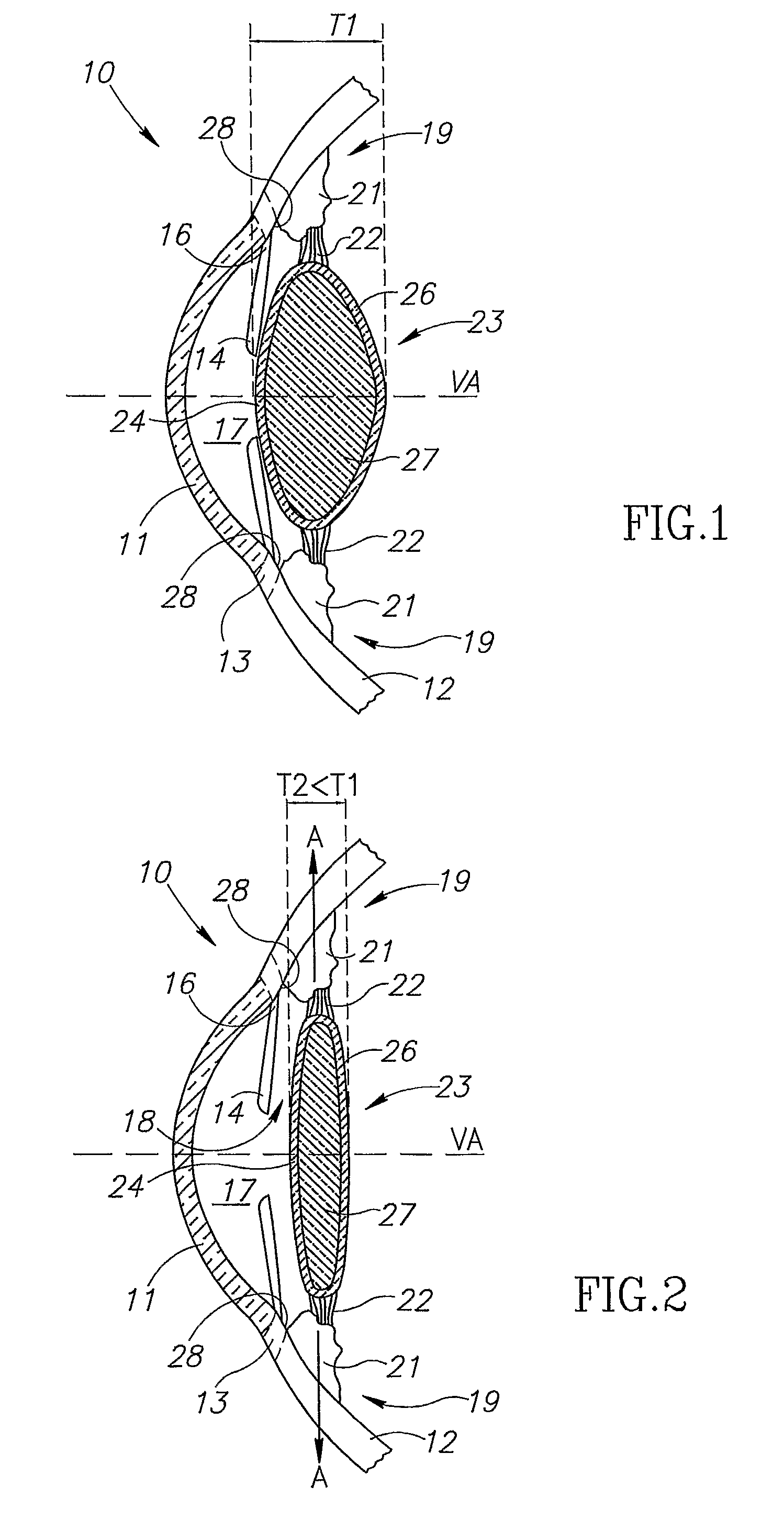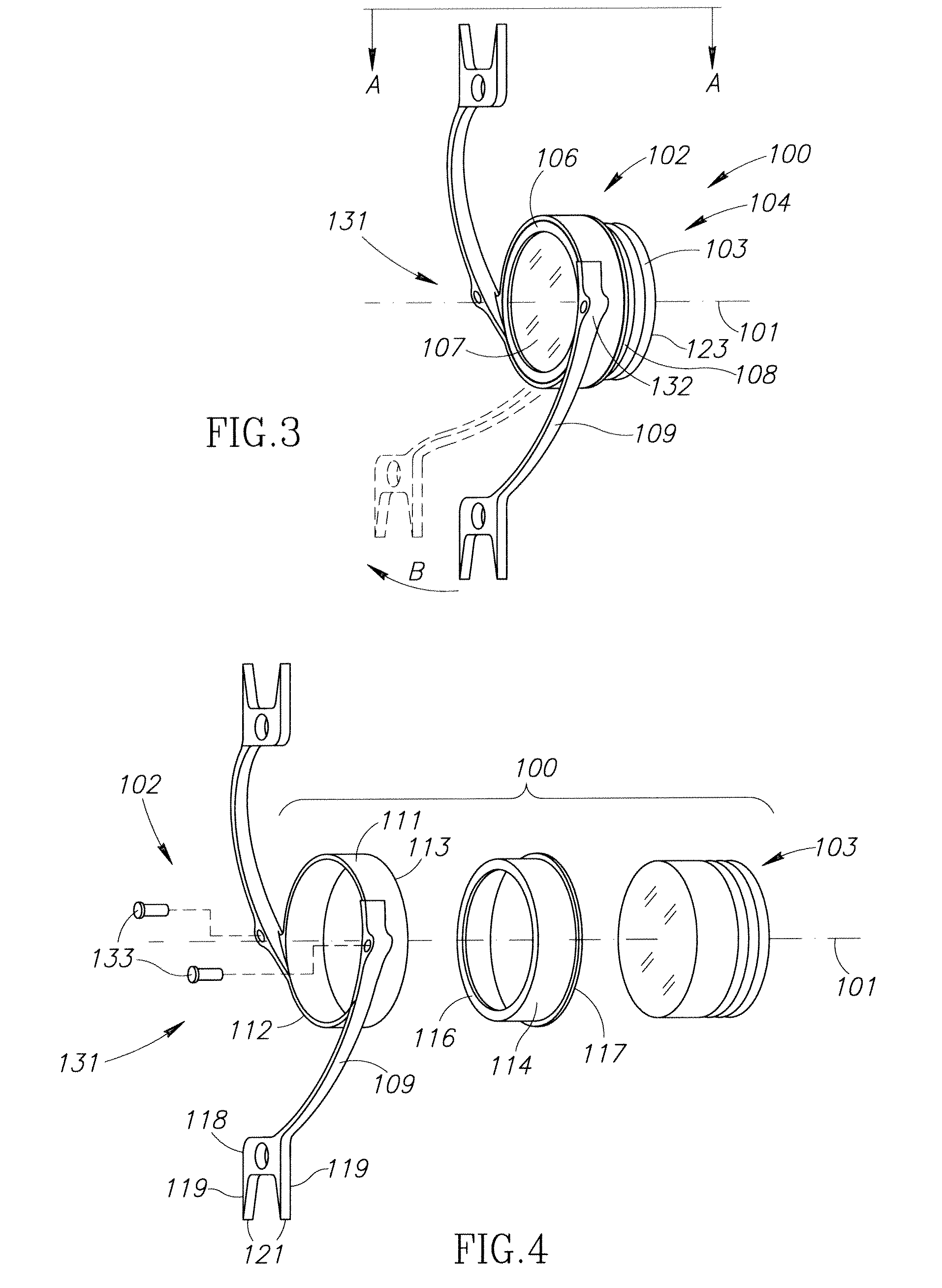Unitary accommodating intraocular lenses (AIOLs) and discrete base members for use therewith
a technology of intraocular lenses and base members, which is applied in the field of accommodating intraocular lenses (aiols) and discrete base members for use therewith, can solve the problems of reducing the forces available for acting upon the above, and achieves the effects of reducing resistance to axial compression force, easy to adapt to the situation, and improving acuity of vision
- Summary
- Abstract
- Description
- Claims
- Application Information
AI Technical Summary
Benefits of technology
Problems solved by technology
Method used
Image
Examples
Embodiment Construction
[0062]FIGS. 1 and 2 are cross section views of an anterior part of a human eye 10 having a visual axis VA in its natural near and distance vision conditions, respectively, in an axial plane of the human body. The human eye 10 has a cornea 11 peripherally connected to a spherical exterior body made of tough connective tissue known as the sclera 12 at an annular sclero-corneal juncture 13. An iris 14 inwardly extends into the human eye 10 from its root 16 at the sclero-corneal juncture 13 to divide the human eye's anterior part into an anterior chamber 17 and a posterior chamber 18. A sphincter-like peripheral structure known as the ciliary body 19 includes ciliary processes housing ciliary muscles 21 fired by parasympathetic nerves. The ciliary muscles 21 are connected to zonular fibers 22 which in turn are peripherally connected to the equatorial edge of a membrane known as the capsular bag 23 with an anterior capsule 24 and a posterior capsule 26 enrobing a natural crystalline lens...
PUM
 Login to View More
Login to View More Abstract
Description
Claims
Application Information
 Login to View More
Login to View More - R&D
- Intellectual Property
- Life Sciences
- Materials
- Tech Scout
- Unparalleled Data Quality
- Higher Quality Content
- 60% Fewer Hallucinations
Browse by: Latest US Patents, China's latest patents, Technical Efficacy Thesaurus, Application Domain, Technology Topic, Popular Technical Reports.
© 2025 PatSnap. All rights reserved.Legal|Privacy policy|Modern Slavery Act Transparency Statement|Sitemap|About US| Contact US: help@patsnap.com



